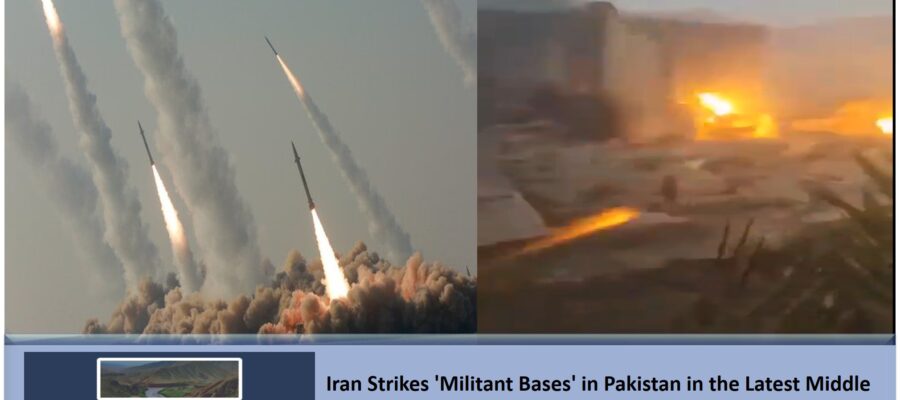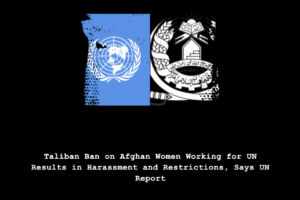The recent airstrikes by Iran on Pakistan territory have escalated tensions between the two countries. Pakistan’s foreign ministry reported two children killed and three injured in what they deemed an “illegal” airstrike, protesting against the “unprovoked violation of its airspace.” The strikes targeted the Balochistan province, along the border between Iran and Pakistan, with social media accounts suggesting missile and drone attacks.
The intended targets were said to be bases of the Sunni militant group Jaish al-Adl. Despite the initial reports in Iranian media, references to the attack disappeared swiftly. This incident marks a significant escalation in the already tense relationship between Iran and Pakistan, primarily due to the activities of Balochi separatists and other militant groups in the border region.
The airstrikes in Pakistan occurred shortly after Iranian missile strikes in Syria and Iraq, part of reprisals following a double suicide bombing in Kerman on January 3 that claimed over 80 Iranian lives. The attack in Kerman was claimed by the Islamic State (IS). The Iranian reprisals, while not directly linked to the Gaza war, coincide with regional instability sparked by the conflict.
Koh-e-Sabz, located approximately 50 kilometers (31 miles) from Pakistan’s border with Iran, has gained notoriety as the alleged home of Jaish-ul-Adl’s former second-in-command, Mullah Hashim. This area has been a focal point of tensions and clashes between the militant group and Iranian forces, particularly in the adjacent Iranian region of Sarawan, near Panjgur. The volatile history of Koh-e-Sabz is deeply intertwined with the activities of Jaish al-Adl, a separatist militant group operating on both sides of the border.
Jaish al-Adl: Origins and Objectives Jaish al-Adl, formerly known as the Group of Baluches, traces its roots back to 1985 when Sadar Wali Arian Baluch led the organization. Originally operating under a different name, the group transformed in 2010 and adopted the name Jaish al-Adl. This militant faction has been associated with pursuing the independence of Iran’s Sistan and Baluchistan province, a region marked by its diverse ethnic composition and historical tensions with the central Iranian government.
Mullah Hashim and the 2018 Clash: Mullah Hashim, the former second-in-command of Jaish-ul-Adl, played a significant role in the group’s activities. The culmination of his involvement came in 2018 when clashes erupted between Jaish-ul-Adl militants, including Hashim, and Iranian forces in Sarawan. The result was a fatal encounter that saw the demise of Mullah Hashim, marking a critical moment in the ongoing conflict between the separatist group and Iranian authorities.
Recent Incidents and Iranian Accusations: In recent times, Koh-e-Sabz has been linked to escalating tensions between Jaish al-Adl and Iranian security forces. Last month, Iran accused militants associated with Jaish al-Adl of launching a brazen attack on a police station in the province of Sistan and Baluchistan. The assault resulted in the tragic deaths of 11 Iranian police officers, according to reports from Tasnim, a prominent Iranian news agency. This incident has further heightened the security concerns in the region.
Cross-Border Operations: Jaish al-Adl’s ability to operate on both sides of the Iran-Pakistan border has added complexity to the security dynamics in the area. The group has claimed responsibility for various attacks against Iranian targets, underscoring its cross-border reach. The porous nature of the border facilitates the movement of militants, making it challenging for authorities to curb their activities effectively.
The broader Middle East region is experiencing heightened tensions, including Houthi rebel attacks on Red Sea shipping in solidarity with Palestinians in Gaza, leading to U.S. and allied airstrikes in Yemen. The Biden administration is reportedly planning to redesignate the Houthis as specially designated global terrorists.
Iran’s foreign minister met with Pakistan’s caretaker prime minister, but the details of their discussion remain unclear. Baluch nationalists in Balochistan have been involved in a low-intensity insurgency for more than two decades, with suspicions of Pakistan providing support for the insurgents, potentially in coordination with Saudi Arabia.
The recent developments also include Iran firing missiles into northern Syria and Iraq, claiming to target IS bases, as well as an “Israeli espionage headquarters” and “terrorist groups” near the U.S. consulate compound in Erbil. Iraq condemned these attacks as a “blatant violation” of its sovereignty, recalling its ambassador from Tehran and threatening to take the matter to the UN Security Council.
Kauser News in 2024 reported that Iranian Proxy Militants Allegedly Will Targeting U.S. Political Missions and CIA Missions in Afghanistan





